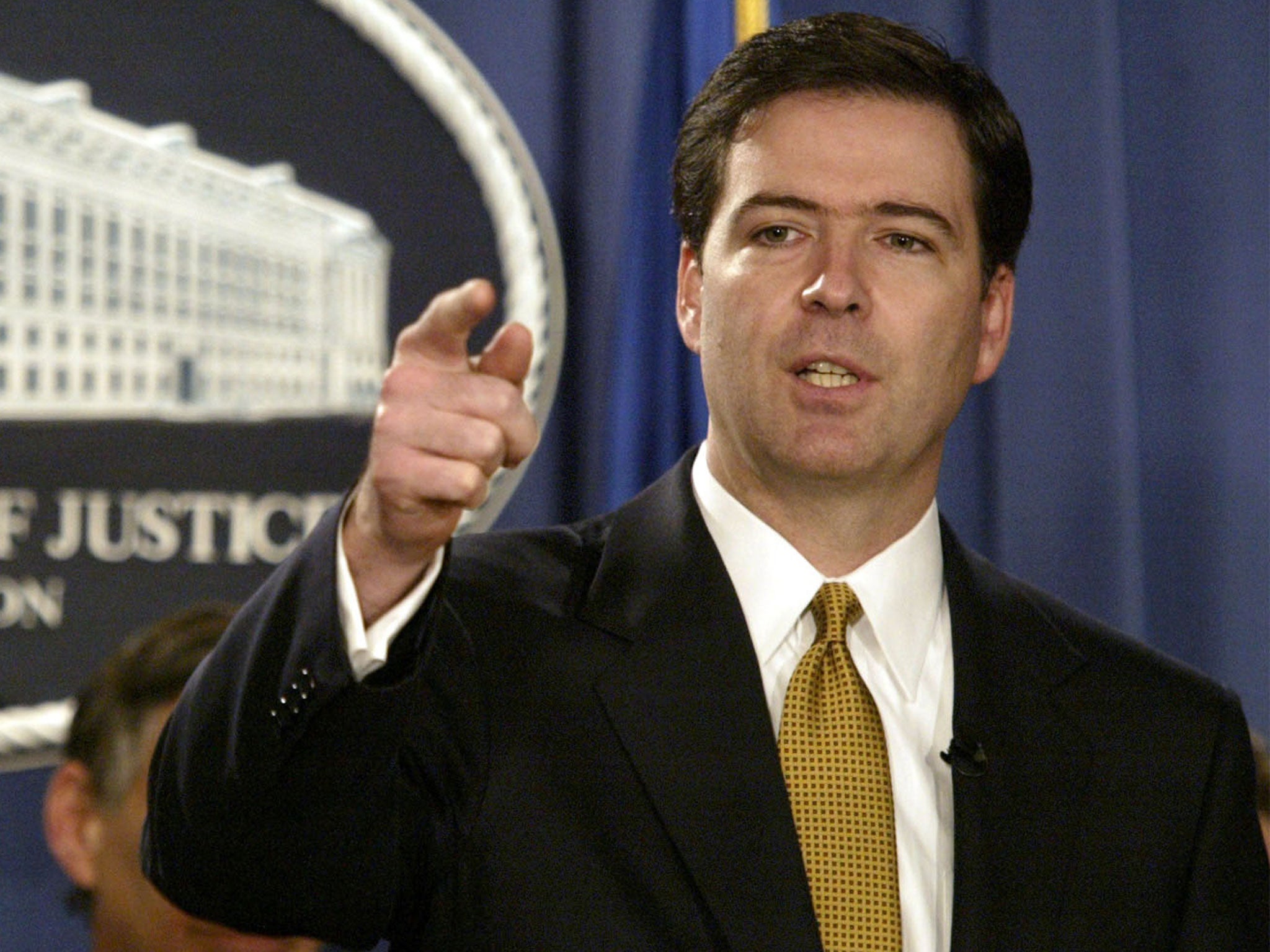FBI director James Comey makes passionate plea for Apple to unlock terrorist’s iPhone
The US government has argued that the case is not about precedent or sending a message, as Apple has claimed, and that people should ‘stop saying the world is ending’

Your support helps us to tell the story
From reproductive rights to climate change to Big Tech, The Independent is on the ground when the story is developing. Whether it's investigating the financials of Elon Musk's pro-Trump PAC or producing our latest documentary, 'The A Word', which shines a light on the American women fighting for reproductive rights, we know how important it is to parse out the facts from the messaging.
At such a critical moment in US history, we need reporters on the ground. Your donation allows us to keep sending journalists to speak to both sides of the story.
The Independent is trusted by Americans across the entire political spectrum. And unlike many other quality news outlets, we choose not to lock Americans out of our reporting and analysis with paywalls. We believe quality journalism should be available to everyone, paid for by those who can afford it.
Your support makes all the difference.The director of the FBI has written a passionate response to Apple’s refusal to unlock a terrorist’s iPhone, arguing that if it does not do so we “can’t look the survivors in the eye”.
James Comey has responded to Apple’s equally passionate argument that it will not unlock a phone used by one of the San Bernardino killers, asking that people “stop saying the world is ending”, and allow the company to break into one phone.
Apple has argued that it will not help the FBI break into the phone because doing so would weaken security across all of its handsets. It would have to create a special version of the operating system that would feature weakened security, and Apple argues that vulnerability would inevitably make it to other phones.
The company has also said that assisting the FBI to break into a phone could set a dangerous precedent. Apple has resisted calls to weaken security, but assenting in this case could make it less able to resist in the future, it has argued.
But Mr Comey argued that the argument about precedent is not convincing, since this “particular legal issue is actually quite narrow”. “The relief we seek is limited and its value increasingly obsolete because the technology continues to evolve,” he wrote.
“We simply want the chance, with a search warrant, to try to guess the terrorist's passcode without the phone essentially self-destructing and without it taking a decade to guess correctly,” Mr Comey wrote in an impassioned open letter titled ‘We Could Not Look the Survivors in the Eye if We Did Not Follow this Lead’.
“That's it. We don't want to break anyone's encryption or set a master key loose on the land.”
He asked that people “take a deep breath and stop saying the world is ending, but instead use that breath to talk to each other”.
Mr Comey also argued that rather than having Apple or the FBI arguing about the rights and wrongs of the case, the public should decide whether the judge’s ruling that the iPhone should be broken into should be upheld.
“It should be resolved by the American people deciding how we want to govern ourselves in a world we have never seen before,” Mr Comey wrote. “We shouldn't drift to a place—or be pushed to a place by the loudest voices—because finding the right place, the right balance, will matter to every American for a very long time.“
Join our commenting forum
Join thought-provoking conversations, follow other Independent readers and see their replies
Comments